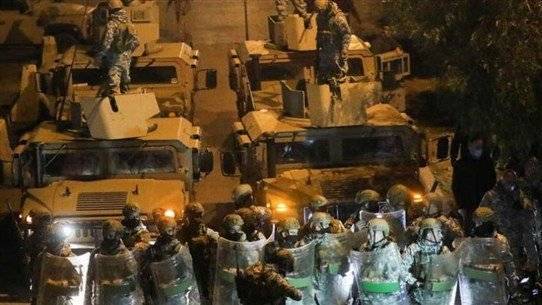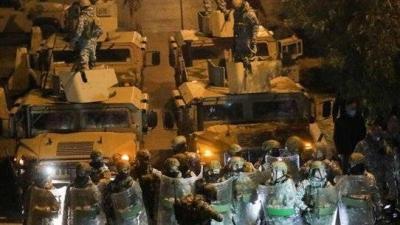The demons of security threats in Lebanon have awakened amidst a security-social breakdown, alongside another concerning extremist or terrorist organizations. Recently, Lebanese security forces have arrested several individuals accused of forming security cells planning to target the Lebanese army, as occurred in the Qaroun area of Western Bekaa a few days ago. These security events are not trivial, tied to Lebanese fears about the dangers the coming phase might bring, amidst social, financial, political, and constitutional crises, in addition to the issue of the return of Syrian refugees and the government's pressure on both Arab and international communities for their repatriation. This pressure will lead to intensified pressures on the refugees in the camps to encourage their return.
Some believe that the Lebanese goal behind this is to attract international attention to the Lebanese arena and seek financial assistance, aiming to reinstate Lebanon on the international agenda. Conversely, the shadow of social security breakdown looms over the northern capital, Tripoli, which witnessed a robbery at a cellphone store, resulting in four deaths. It is still unclear whether the crime was solely for theft or an attempt to create security problems for political purposes.
All that is happening leads the Lebanese to fear what the coming days might hold, amidst political and constitutional disputes that threaten to escalate into dangerous phases or resorting to the streets to showcase power and solidify political realities linked to the presidential elections. There are indications that the Free Patriotic Movement, loyal to the President, is considering multiple options, including taking to the streets to confront the opponents of the presidency, particularly if a new government is not formed—this would lead to a major crisis in the country, especially since President Michel Aoun is accusing Presidents Nabih Berri and Najib Mikati of obstructing government formation to control his presidential powers through the caretaker government, which Aoun categorically rejects while contemplating how to address this situation.
Amidst these crises, the visit of U.S. mediator Amos Hochstein to Lebanon brought no new developments, except for fostering a positive atmosphere and making progress related to the file, expressing optimism about reaching a close resolution. However, the points raised in the meeting, especially those regarding maritime border delineation, heighten Lebanese fears of new delays or attempts to separate the land demarcation from the maritime one, even though Lebanon previously insisted on linking both delineation processes.
According to Lebanese sources, Israel does not wish to link the maritime and land delineation processes, as this would have future implications on Shebaa Farms and Kfarshouba Hills. In particular, if the starting point of the maritime border delineation is set at the last land point in Ras al-Naqoura, known as B1, this would negatively affect Israel in later land delineation. For Lebanon, relinquishing this point is not an option. Sources following the developments state that this concern is about buying time, but when the right moment comes, it will be possible to agree on all these details, while some express fears that such agreements may only come after security skirmishes.




